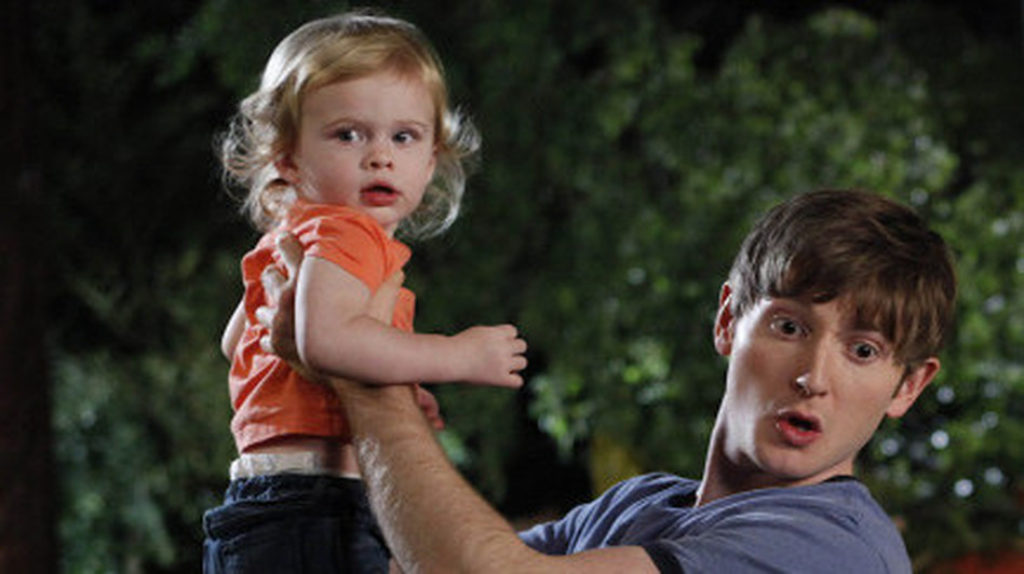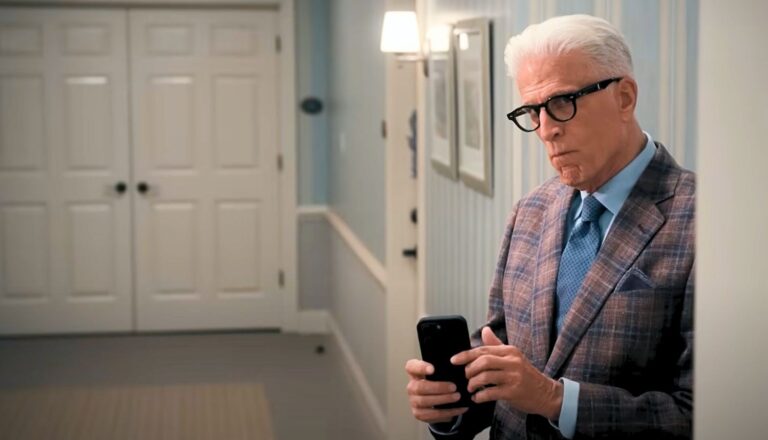
Dune: Prophecy
Language, violence and sexual content will make ‘Dune: Prophecy’ much less accessible to families than the films it’s based on.

Hope, they say, springs eternal. And it’s hard not to hold out some of it for a series called Raising Hope, featuring a single dad rearing his baby daughter the best way he can.
Hope is an adorable baby surrounded by her extended family. Jimmy is her caring but overwhelmed pop. Virginia and Burt are her open-armed grandparents. Maw Maw is her trying-to-be-helpful great-grandmother. And the whole clan finds time to go to church.
But alas for poor Hope, her small-screen family lives not on Hallmark Avenue but on Fox Street—a neighborhood where The Simpsons look positively well-adjusted.
Hope’s mother, as it turns out, is a serial killer, caught and sentenced. Jimmy spent just one night with the woman (which is a good thing for him, since she made a habit of killing her boyfriends). In desperation, he turns to his own parents for help with Hope. And they provide what meager encouragement they can.
When Jimmy laments how much time and energy the baby takes—how he feels that he’s losing his own life to hers—Burt comes in with a septic pep talk:
“I was miserable when you came along. I hated you.”
“Really?” Jimmy says. “You’re not just saying that to make me feel better?”
For all her good intentions, Maw Maw, meanwhile, accidentally pours rat poison into coffee and makes snickerdoodles out of dirt. So, ever since that unfortunate episode at church when she whipped up instant oatmeal in the holy water, the family’s taken to keeping her on a leash. Burt considers removing it in one episode—but only because he knows that if she dies they’ll get the family house tax free. When Maw Maw breaks free of her leash, Burt watches her run into the street with a curious mix of fear and anticipation.
“Sorry Burt!” yells one of his friends, who stops his car just before hitting the elderly woman. “Too many witnesses! Good luck, though!”
It’s as far away from Leave It to Beaver as you can get, and intentionally so. These folks are not role models—no one would take them as such. And so Hope’s being raised in a crass, sour world, one that, if she were a real kid, would make her future therapists rich. I’m sure the writers are trying to say something sweet by giving the whole clan the last name of Chance. Perhaps, through this little baby, they’re suggesting they all have a Chance at a little Hope.
From what I’ve seen so far, though, a more appropriate last name might’ve been Less.
“Toy Story”
In between scores of jokes ribbing Christians and making light of God’s ultimate gift, Virginia sets out to make sure Hope becomes Baby Jesus in their church’s live nativity scene, just like Jimmy was. It’ll be “the second Messiah from the Chance family,” she says. “Sort of a second coming, if you will.” But the church rejects Hope for being a murderer’s baby, so Virginia organizes a rival nativity across the street.
Meanwhile, Burt runs a toy reselling scheme, snapping up the year’s hot Christmas gifts and selling them at a steep markup. The two storylines collide when Jimmy, to attract a crowd for Virginia’s nativity scene, auctions off the last toy (Hope’s push-its-belly-to-make-it-sneeze doll). He holds it aloft as an attendee gasps, “It’s the Baby Sneezus!” For the record, the family uses the proceeds to buy an organ for the church, and in doing so the story hints at the value of a good name.
Burt is conflicted as to whether he wants Maw Maw to die, and we see him struggle with the ethical “dilemma” of allowing herself to poison her own coffee or get run over. When she chokes on a piece of food, he (hesitantly) makes his decision and decides to save her life.
We hear “d‑‑n,” “b‑‑ch” and misuses of God’s name. Several people, including a 3-year-old, rudely reference testicles. There’s a very crude joke about vaginas.
“Burt Rocks”
Burt, lamenting he never got to play guitar for 1980s big-hair rocker Smoky Floyd, gets a second chance when Jimmy gets Floyd to perform at his grocery store. But when Floyd insults Jimmy, Hope and most of the town, Jimmy knocks the musician out with an instrument. A clip of the confrontation then becomes a hit on the Internet, giving Burt the fame he longed for.
Before the gig, Jimmy gives his father this inspiring encouragement: “You can do this, Dad,” he says. “I know you can. And if you don’t, I still love you, but you gotta try.”
And then, as abruptly as it appeared, the positivity vanishes. Burt occasionally kisses his son uncomfortably on the lips. And when Jimmy asks his dad not to do it anymore, Burt says, “I’m not making any promises”—and very curiously asks him to take off his pants. Characters reference sex, venereal infections and women’s rears. We watch Floyd guzzle whiskey, learn he lost a testicle to tight pants and gather that his most famous song—”Burning Deep Inside”—has become the jingle for a hemorrhoid cream. “D‑‑n,” “h‑‑‑” and stand-ins for the f-word mingle with misuses of God’s name.


Paul Asay has been part of the Plugged In staff since 2007, watching and reviewing roughly 15 quintillion movies and television shows. He’s written for a number of other publications, too, including Time, The Washington Post and Christianity Today. The author of several books, Paul loves to find spirituality in unexpected places, including popular entertainment, and he loves all things superhero. His vices include James Bond films, Mountain Dew and terrible B-grade movies. He’s married, has two children and a neurotic dog, runs marathons on occasion and hopes to someday own his own tuxedo. Feel free to follow him on Twitter @AsayPaul.

Language, violence and sexual content will make ‘Dune: Prophecy’ much less accessible to families than the films it’s based on.

The crudities in A Man on the Inside probably won’t make your sky fall, but to say you should ignore them would force me to tell true lies.

In Cartoon Network’s Invincible Fight Girl, Andy pursues her dream of becoming a pro wrestler, despite her upbringing on Accountant Isle.

Apple TV+’s Silo pairs a sci-fi murder-mystery with profanity and violence in a world where nothing is as it seems.
Our weekly newsletter will keep you in the loop on the biggest things happening in entertainment and technology. Sign up today, and we’ll send you a chapter from the new Plugged In book, Becoming a Screen-Savvy Family, that focuses on how to implement a “screentime reset” in your family!